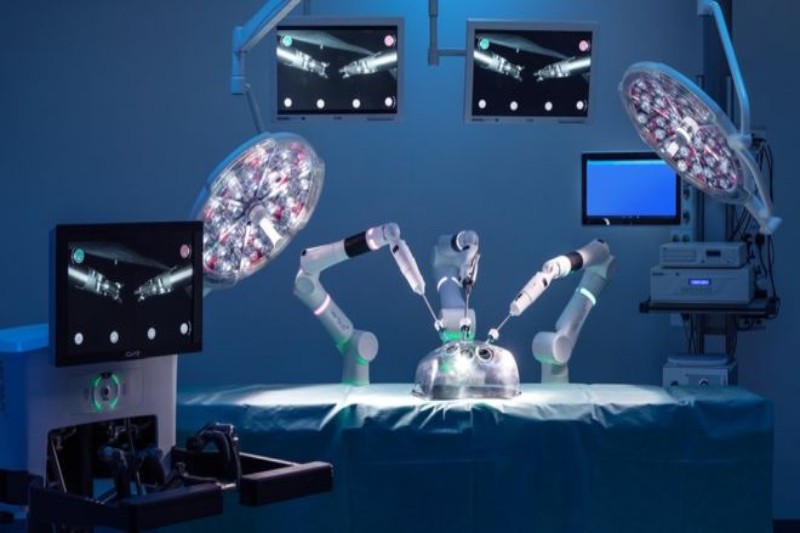Space Surgery Experiment Paves Way for Remote Medical Care on Earth

On the International Space Station (ISS), a tiny remote-controlled robot will try a surgical technique that might be a huge step forward for remote medical services and hope for even the most isolated rural populations.
Co-founder of Virtual Incision Shane Farritor said of the trial, “When we started this work at the University of Nebraska, we shared a collective vision that miniRAS could make robotic-assisted surgery available to any patient, anytime, anywhere,” according to NPR.
“Exploring the use of miniRAS in extreme environments helps our teams understand how we can remove barriers for patients.”
MIRA, an acronym for miniature in vivo robotic assistant, is a robot that weighs about two pounds and mimics the movements of a surgeon. The surgeon will be able to operate the robot remotely from almost 250 miles away in Nebraska.
This is how AI will Improve Health Care to Fulfill Consumer Demands
The company Virtual Incision Corporation, situated in Nebraska, is in charge of creating the miniRAS system, which would facilitate the procedure. They stated that the robot can hold objects in one hand while making cuts with another.
The corporation has made it clear that one of its goals is for technology to progress to the point where it can assist in bringing doctors and remote areas of the planet together to provide access to high-quality surgical procedures.
Over the past ten years, researchers have been studying medical procedures in space, making small but significant advancements. In 2012, an article titled “Surgery in Space: Where are we at now?” addressed questions over how human physiology might be affected by microgravity and how this would make Earth-based medical procedures more difficult.
Could this Autonomous Security Robot Remedy a Security Guard Shortage?
For example, suturing could be done in a manner that is “but slower” than in normal gravity, requiring the operator to get used to the microgravity environment.
“A unique system for delivery of medical care in space must be capable of handling medical events given the extreme operational medical setting.” They highlighted successful completion of a variety of procedures, including as leg dissection, craniotomy, laparoscopy, and ureteral stenting, in previously conducted simulations of microgravity conditions.
A article titled “Robot-assisted surgery in space: pros and cons,” which was released ten years later, brought up new and challenging topics to discuss, like communication problems. It implied that the only method to enable remote surgeries was to employ telemedicine and merely have “telemonitoring.”
In the United States, is there a need to be concerned about the possibility of contracting rabies?
But it did draw attention to additional advantages that have since been found as a result of employing robotic surgeons in limited environments. These advantages include the division of labor, aiding in the “transfer” of tasks to the robots, and contributing to “significantly reduce the cognitive load on humans’ abundance of critical decisions that must be taken in a timely manner to ensure safety.”
According to an article on the subject by engineering infrastructure development company Utilities One, advancements in satellite technology would facilitate the performance of increasingly sophisticated surgeries and aid with some of the communication problems.
The solution to the problem seems to lie in improving satellite technology. Elon Musk concentrated on using satellites to deliver his Starlink internet service, hoping that his technique would enable him to connect even the most isolated places to the rest of the globe.
“Leveraging the power of satellites orbiting the Earth, this transformative approach to surgery is set to overcome the limitations of traditional methods by enabling remote, minimally invasive procedures on a global scale,” Utilities One said about the subject.